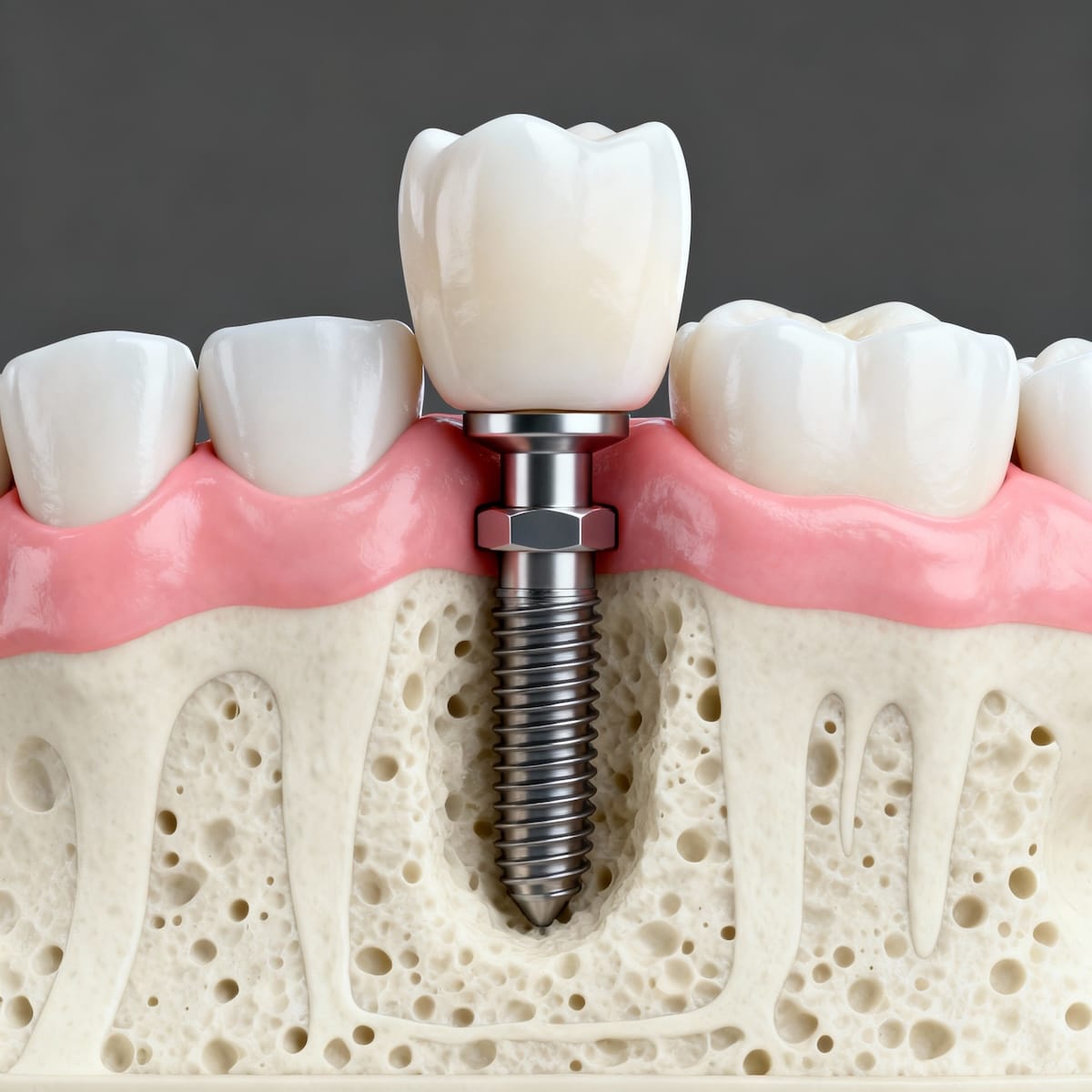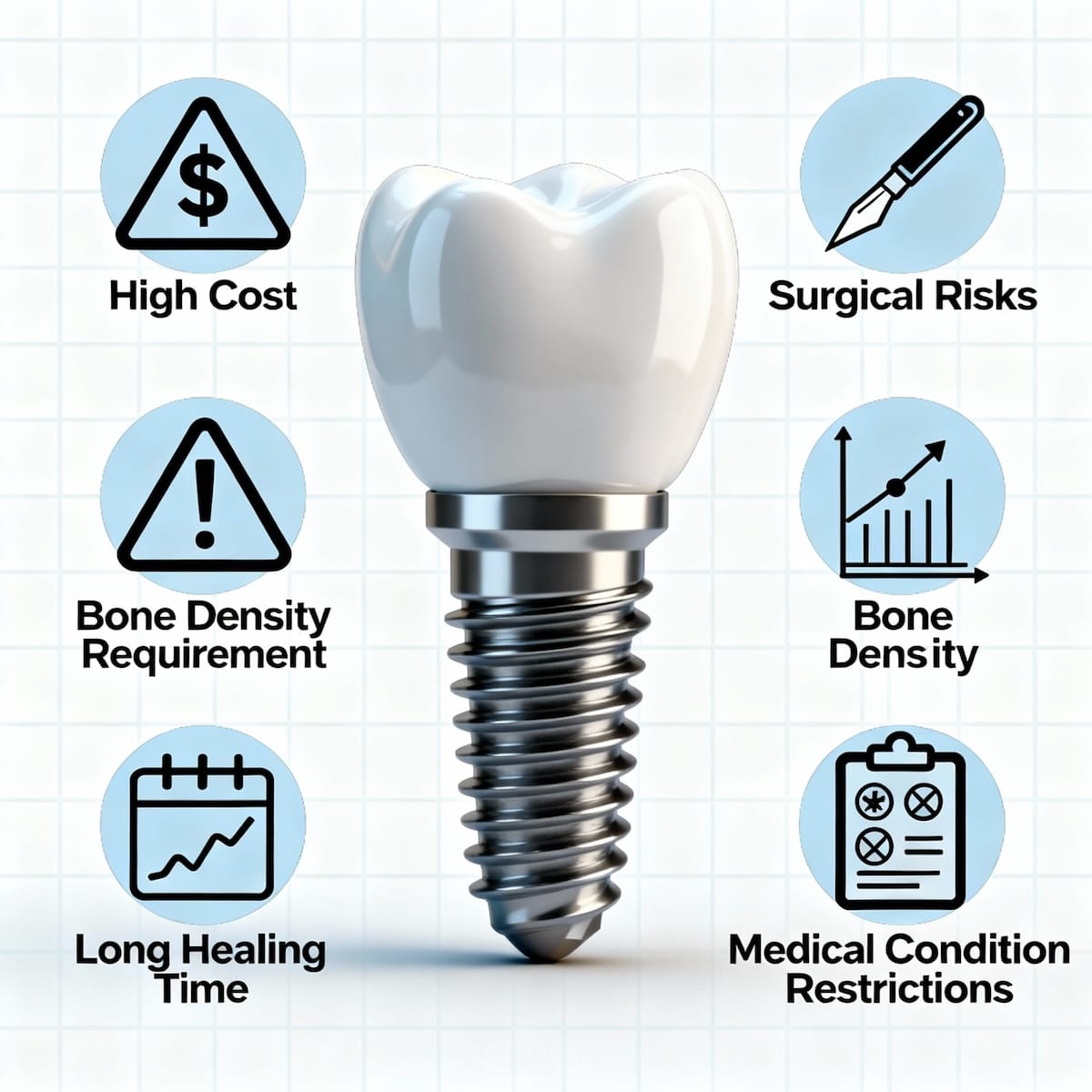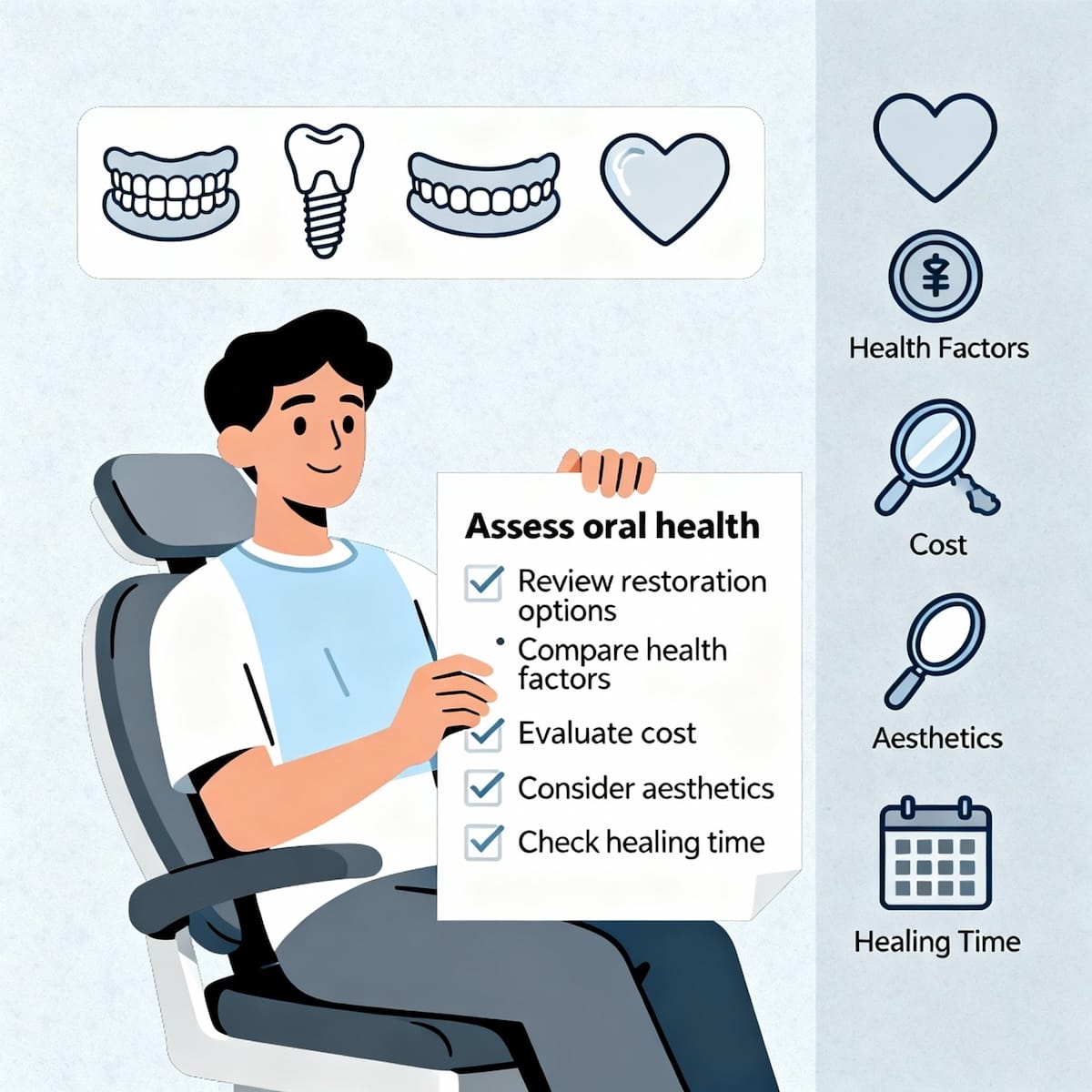Alternatives to Dental Implants: Best Options to Consider in India
Missing teeth are a common dental problem with many possible solutions. While dental implants offer a long-term fix, they involve an invasive surgical procedure followed by a considerable healing period. Not to mention, other important factors such as your gum health, lifestyle, and bone density play a role in deciding whether implants are the right choice for you.
In this blog post, we will explore some great alternatives to dental implants that can help you restore your smile and confidence.
What Are the Alternatives to Dental Implants?
Alternatives to dental implants include dental bridges, dentures, flippers, and implant-supported bridges, depending on your oral health and restoration needs. Dental bridges fill gaps by anchoring artificial teeth to adjacent natural teeth. Dentures (partial or full) replace multiple missing teeth and can be removed for cleaning. Flippers are temporary, lightweight dentures used as a quick and affordable short-term solution. Implant-supported bridges combine the stability of implants with the coverage of a bridge, making them ideal for restoring several missing teeth with a secure, natural-looking fit.

All these options have unique benefits and considerations, which we'll explore in detail below.
1. Dental Bridge
A dental bridge is a permanent replacement option for one or more missing teeth, where false teeth are supported by the neighbouring natural teeth or, in some cases, by implants. Bridges are a tried-and-tested alternative to dental implants that restore both function and aesthetics. There are different types of bridges; let's have a look at them.
Types of Dental Bridges:
Traditional Bridges: This type of bridge works by placing crowns on the teeth next to the gap, with an artificial tooth fixed in between. They’re the most common kind of bridge and are known for their strength and durability.
Cantilever Bridges: Instead of being anchored on both sides of the gap, a cantilever dental bridge is anchored by a dental crown only on one side of the gap. This type of dental bridge is suitable when adjacent teeth are limited or in areas with less biting force.
Resin-Bonded (Maryland) Bridges: A minimally invasive bridge where a false tooth is attached to the back of neighbouring teeth using metal or porcelain wings. This type of dental bridge preserves more natural tooth structure.
Pros:
Fixed and stable, like natural teeth.
Highly aesthetic and functional.
Doesn’t require surgery, unlike implants.
Cons:
Requires the reshaping of adjacent healthy teeth.
May not last as long as implants (typically 8 to 15 years).
Risk of decay under crowns if oral hygiene is poor.
2. Dentures
Dentures are removable oral appliances designed to replace missing teeth and the surrounding tissues. They restore chewing function, improve speech, and enhance the appearance of a smile. There are several types of dentures:
Types of Dentures:
Partial Dentures: Replace a few missing teeth and are secured to existing teeth with clasps or precision attachments.
Full Dentures: Replace all teeth in an arch and rest directly on the gums.
Pros:
Non-invasive and quick to fit.
More affordable upfront than implants.
Can improve chewing ability and appearance significantly.
Cons:
May feel less natural initially.
Require daily maintenance and cleaning.
Can cause gum irritation or slipping if ill-fitting.
3. Flipper
A flipper is a temporary, removable plastic tooth attached to a retainer. It’s an ideal short-term solution for patients waiting for a permanent replacement.
Pros:
Quick and inexpensive.
Helps maintain aesthetics and space until permanent treatment.
Cons:
Not durable or suitable for long-term use.
Can affect speech and comfort.
4. Implant-Supported Bridge
This option combines the benefits of dental implants and bridges. In this treatment method, implants are placed to support a bridge, making it an ideal solution for patients with multiple missing teeth.
Pros:
Highly stable and functional.
Preserves jawbone better than traditional bridges or dentures.
Cons:
More expensive than regular bridges.
Requires minor surgery and healing time.
5. Root Canal Treatment
In some cases, the natural tooth can be saved with a root canal treatment, avoiding extraction and replacement altogether.
Pros:
Preserves natural tooth structure.
Less expensive than implants.
Maintains jawbone integrity.
Cons:
A tooth may become brittle over time and require a crown.
Not suitable if the tooth is severely damaged or infected.
Why Consider Alternatives to Dental Implants?

While dental implants offer unmatched longevity and stability, they may not be suitable for everyone due to:
Higher cost compared to other options.
Surgical procedure with associated risks.
Requirement for sufficient jawbone density.
Longer treatment and healing times.
Medical conditions that prevent surgery.
Dental implant alternatives can offer quicker, less invasive, or more affordable solutions while still restoring function and appearance.
How to Choose the Best Alternative to Dental Implants?

When selecting the best solution for missing teeth, consider the following:
Oral & General Health: Conditions like diabetes, smoking, bone quality, and certain medications may influence your choices. So, go for the one that best suits your oral and overall health.
Bone Availability: Insufficient bone may limit implants. But certain dental implant alternatives, like dentures or bridges, are not affected by this.
Condition of Neighbouring Teeth: Healthy adjacent teeth favour resin-bonded bridges, whereas teeth that require crowns may be better suited to fixed bridges.
Cost & Budget: Bridges and dentures are more budget-friendly, while implants are a long-term investment. It’s important to weigh the costs of dental implants carefully before making your decision.
Timeline: If you want a quick replacement, dentures and bridges are perfect because implants essentially require a healing period.
Aesthetics & Function: If looks and aesthetics matter to you along with functionality, then bridges and implants are your best bet for a more natural-looking fix to missing teeth.
Long-Term Plans: Patients looking for a more low-maintenance and permanent solution to their missing tooth problem favour implants. Otherwise, dentures and bridges are other common implant alternatives.
Conclusion
Replacing missing teeth isn’t a one-size-fits-all solution. While dental implants are often considered the gold standard, alternatives like bridges, dentures, flippers, and root canal treatments can be equally effective depending on your oral health, budget, and long-term goals.
The best way forward is to understand your unique needs and choose a treatment that balances comfort, durability, and aesthetics. At Dezy, our dental experts guide you through every step, from evaluating your oral health to helping you select the right option for your smile.
FAQs
1. Are dental implants always the best choice?
Implants are excellent for long-term results, but alternatives like bridges or dentures can be equally effective depending on bone health, budget, and preference.
2. How long do bridges last compared to implants?
Bridges typically last 8 to 15 years, while implants can last for more than 15 years or even a lifetime with proper care.
3. Will a bridge damage adjacent teeth?
Traditional bridges require reshaping adjacent teeth, which may remove healthy structure. Resin-bonded bridges minimise this risk.
4. Can dentures look natural?
Yes, modern dentures can be highly aesthetic but may feel different from natural teeth initially.
5. I have bone loss - can I still get implants?
You may need additional treatment such as bone grafting, which comes with added expense. If not feasible, bridges, resin-bonded options, or overdentures are viable alternatives to dental implants altogether.
6. Are resin-bonded bridges as strong as traditional bridges?
No, and hence, they are best suited for front teeth with lower biting forces.
7. Will a removable partial denture ruin my other teeth?
Properly designed removable partial dentures (RPDs) and regular dental care help minimise risks. Precision attachments also reduce visible clasps.
8. How do overdentures help bone preservation?
Preserving roots under an overdenture stimulates the jawbone, slowing resorption compared to conventional dentures.
9. Can I switch later from a denture to an implant?
Yes, in fact, many start with dentures and later go for implants if they have the bone strength for it.
10. Which option preserves the most bone?
Natural tooth preservation (via root retention) and implants preserve bone best.
11. How soon after tooth loss should I replace it?
Sooner is better to prevent shifting and bone loss. Timely assessment helps when considering implants later.
12. What is the cost difference between a dental implant and its alternatives?
While implants are durable and hence prove to be more cost-effective, they do come with a significant upfront cost. Dentures and bridges, on the other hand, are cheaper upfront.

